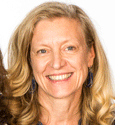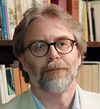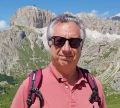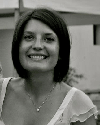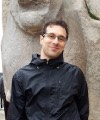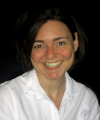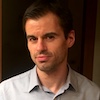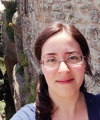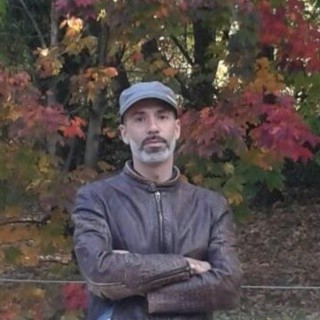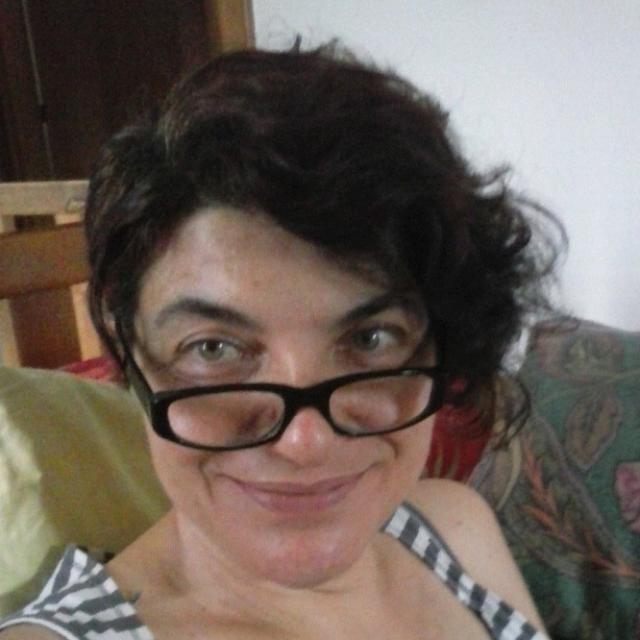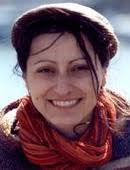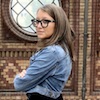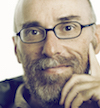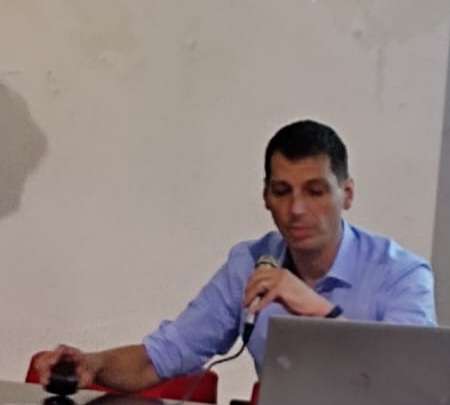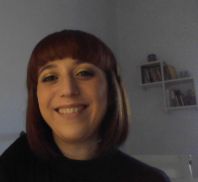Studying at the University of Verona
Here you can find information on the organisational aspects of the Programme, lecture timetables, learning activities and useful contact details for your time at the University, from enrolment to graduation.
Academic calendar
The academic calendar shows the deadlines and scheduled events that are relevant to students, teaching and technical-administrative staff of the University. Public holidays and University closures are also indicated. The academic year normally begins on 1 October each year and ends on 30 September of the following year.
Course calendar
The Academic Calendar sets out the degree programme lecture and exam timetables, as well as the relevant university closure dates..
| Period | From | To |
|---|---|---|
| CuCi IA | Sep 21, 2020 | Oct 31, 2020 |
| CuCi IB | Nov 9, 2020 | Jan 9, 2021 |
| CuCi IIA | Feb 15, 2021 | Apr 1, 2021 |
| CuCi IIB | Apr 14, 2021 | May 29, 2021 |
| Session | From | To |
|---|---|---|
| sessione d'esame invernale CuCi | Jan 11, 2021 | Feb 13, 2021 |
| sessione d'esame estiva CuCi | Jun 7, 2021 | Jul 24, 2021 |
| sessione d'esame autunnale CuCi | Aug 23, 2021 | Sep 18, 2021 |
| Session | From | To |
|---|---|---|
| sessione di laurea invernale 19-20 | Apr 7, 2021 | Apr 13, 2021 |
| sessione di laurea estiva 20-21 | Jul 5, 2021 | Jul 10, 2021 |
| Sessione autunnale di laurea a.a. 2020/21 | Nov 8, 2021 | Nov 13, 2021 |
| Sessione straordinaria di laurea a.a. 2020/21 | Mar 28, 2022 | Apr 2, 2022 |
| Period | From | To |
|---|---|---|
| Festa di Ognissanti | Nov 1, 2020 | Nov 1, 2020 |
| Chiusura Ateneo ponte Immacolata | Dec 7, 2020 | Dec 7, 2020 |
| Festa dell'Immacolata | Dec 8, 2020 | Dec 8, 2020 |
| Vacanze di Natale | Dec 24, 2020 | Jan 6, 2021 |
| Vacanze di Pasqua | Apr 2, 2021 | Apr 6, 2021 |
| Festa della liberazione | Apr 25, 2021 | Apr 25, 2021 |
| Festa del lavoro | May 1, 2021 | May 1, 2021 |
| Festa del Santo Patrono | May 21, 2021 | May 21, 2021 |
| Sospensione delle lezioni | May 22, 2021 | May 22, 2021 |
| Festa della Repubblica | Jun 2, 2021 | Jun 2, 2021 |
| Vacanze estive | Aug 9, 2021 | Aug 15, 2021 |
Exam calendar
Exam dates and rounds are managed by the relevant Culture and Civilisation Teaching and Student Services Unit.
To view all the exam sessions available, please use the Exam dashboard on ESSE3.
If you forgot your login details or have problems logging in, please contact the relevant IT HelpDesk, or check the login details recovery web page.
Should you have any doubts or questions, please check the Enrollment FAQs
Academic staff

Bassetti Massimiliano
 massimiliano.bassetti@univr.it
massimiliano.bassetti@univr.it
 045802 8376
045802 8376
 riccardo.bertolazzi@univr.it
riccardo.bertolazzi@univr.it
 francesco.bianchi@univr.it
francesco.bianchi@univr.it
 evita.calabrese@univr.it
evita.calabrese@univr.it
 piergiovanna.grossi@univr.it
piergiovanna.grossi@univr.it
 elisa.lerco@univr.it
elisa.lerco@univr.it
 francesco.lupi@univr.it
francesco.lupi@univr.it
Maganuco Anna Maria Grazia Rita
 anna.maganuco@univr.it
anna.maganuco@univr.it

Mastrocinque Attilio
 attilio.mastrocinque@univr.it
attilio.mastrocinque@univr.it
 +39 045802 8386
+39 045802 8386
 giulia.pedrucci@univr.it
giulia.pedrucci@univr.it
 giulia.perosa@univr.it
giulia.perosa@univr.it
 dino.piovan@univr.it
dino.piovan@univr.it
 alberto.scandola@univr.it
alberto.scandola@univr.it
 massimo.scotti@univr.it
massimo.scotti@univr.it
 cecilia.sideri@univr.it
cecilia.sideri@univr.it
 carlo.vannini@accademiabelleartiverona.it
carlo.vannini@accademiabelleartiverona.it
 giovanna.zoccarato@univr.it
giovanna.zoccarato@univr.it
Study Plan
The Study Plan includes all modules, teaching and learning activities that each student will need to undertake during their time at the University.
Please select your Study Plan based on your enrollment year.
1° Year
| Modules | Credits | TAF | SSD |
|---|
1 module to be chosen among the following2° Year activated in the A.Y. 2021/2022
| Modules | Credits | TAF | SSD |
|---|
Latin literature (i)
2 modules to be chosen among the following1 module to be chosen among the following2 modules to be chosen among the following3° Year activated in the A.Y. 2022/2023
| Modules | Credits | TAF | SSD |
|---|
2 modules to be chosen among the following1 module to be chosen among the following1 module to be chosen among the following| Modules | Credits | TAF | SSD |
|---|
1 module to be chosen among the following| Modules | Credits | TAF | SSD |
|---|
Latin literature (i)
2 modules to be chosen among the following1 module to be chosen among the following2 modules to be chosen among the following| Modules | Credits | TAF | SSD |
|---|
2 modules to be chosen among the following1 module to be chosen among the following1 module to be chosen among the following| Modules | Credits | TAF | SSD |
|---|
Legend | Type of training activity (TTA)
TAF (Type of Educational Activity) All courses and activities are classified into different types of educational activities, indicated by a letter.
Type D and Type F activities
| years | Modules | TAF | Teacher |
|---|---|---|---|
| 1° 2° 3° | Dialogoi. Interdepartmental seminar on the texts of philosophy and ancient literature | F |
Gherardo Ugolini
(Coordinator)
|
| 1° 2° 3° | Fondamenti per introduzione allo studio del linguaggio | F |
Federico Righi
(Coordinator)
|
| 1° 2° 3° | Giornata mondiale della poesia | F |
Arnaldo Soldani
(Coordinator)
|
| 1° 2° 3° | The Unesco World Heritage Sites | F |
Silvana Bianchi
(Coordinator)
|
| 1° 2° 3° | Il testo en abyme: rappresentazioni della scrittura nell’Europa romantica - Convegno internazionale del CRIER - 5-6 novembre 2020 | F |
Corrado Viola
(Coordinator)
|
| 1° 2° 3° | Intercomprehension laboratory between the Romance languages | F |
Alessandra Zangrandi
(Coordinator)
|
| 1° 2° 3° | Laboratory to introduce the study of Ancient Greek | F |
Dino Piovan
(Coordinator)
|
| 1° 2° 3° | Books and writings of the Greek world | F |
Paolo Scattolin
(Coordinator)
|
| years | Modules | TAF | Teacher |
|---|---|---|---|
| 1° 2° 3° | The origins of Christianity | F |
Giannattilio Bonifacio
(Coordinator)
|
| years | Modules | TAF | Teacher |
|---|---|---|---|
| 1° 2° 3° | Convegno su carlo gozzi nel terzo centenario della nascita | F |
Nicola Pasqualicchio
(Coordinator)
|
| 1° 2° 3° | Dialogoi. Interdepartmental seminar on the texts of philosophy and ancient literature | F |
Gherardo Ugolini
(Coordinator)
|
| 1° 2° 3° | Fondamenti per introduzione allo studio del linguaggio | F |
Federico Righi
(Coordinator)
|
| 1° 2° 3° | Intercomprehension laboratory between the Romance languages | F |
Alessandra Zangrandi
(Coordinator)
|
| 1° 2° 3° | Laboratory to introduce the study of Ancient Greek | F |
Dino Piovan
(Coordinator)
|
| 1° 2° 3° | Laboratorio di metrica italiana | F |
Giovanna Zoccarato
(Coordinator)
|
| 1° 2° 3° | Books and writings of the Greek world | F |
Paolo Scattolin
(Coordinator)
|
| years | Modules | TAF | Teacher |
|---|---|---|---|
| 1° 2° 3° | The origins of Christianity | F |
Giannattilio Bonifacio
(Coordinator)
|
| years | Modules | TAF | Teacher |
|---|---|---|---|
| 1° 2° 3° | Antifascismo/i, un percorso in quattro profili | F |
Renato Camurri
(Coordinator)
|
| 1° 2° 3° | Lectures "Musiche/Culture/Civiltà" | F |
Vincenzo Borghetti
(Coordinator)
|
| 1° 2° 3° | Dialogoi. Interdepartmental seminar on the texts of philosophy and ancient literature | F |
Gherardo Ugolini
(Coordinator)
|
| 1° 2° 3° | Educational workshop on bibliotherapy | F |
Marco Dalla Valle
(Coordinator)
|
| 1° 2° 3° | Laboratory of photo | F |
Carlo Vannini
(Coordinator)
|
| 1° 2° 3° | Intercomprehension laboratory between the Romance languages | F |
Alessandra Zangrandi
(Coordinator)
|
| 1° 2° 3° | Laboratory to introduce the study of Ancient Greek | F |
Dino Piovan
(Coordinator)
|
| 1° 2° 3° | Workshop on akkadian language | F |
Simonetta Ponchia
(Coordinator)
|
| 1° 2° 3° | Opera Workshop | F |
Nicola Pasqualicchio
(Coordinator)
|
| 1° 2° 3° | Language and culture of Ancient Anatolia and the Hittites | F |
Federico Giusfredi
(Coordinator)
|
| years | Modules | TAF | Teacher |
|---|---|---|---|
| 1° 2° 3° | Attivita' FAI | F |
Monica Molteni
(Coordinator)
|
| 1° 2° 3° | Workshop on Latin texts translation | - |
Renata Raccanelli
(Coordinator)
|
| 1° 2° 3° | Workshop on Latin texts translation | - |
Renata Raccanelli
(Coordinator)
|
| 1° 2° 3° | Latin Prosody exercises | - |
Paolo De Paolis
(Coordinator)
|
| 1° 2° 3° | Organizzazione e stesura della tesi triennale su temi letterari | - |
Giuseppe Sandrini
(Coordinator)
|
History of science (i) (2021/2022)
Teaching code
4S01266
Teacher
Coordinator
Credits
6
Also offered in courses:
- History of science of the course Bachelor's degree in Philosophy
- History of science (i) of the course Bachelor’s degree in Cultural Heritage
Language
Italian
Scientific Disciplinary Sector (SSD)
M-STO/05 - HISTORY OF SCIENCE AND TECHNOLOGY
Period
1 B dal Nov 15, 2021 al Jan 12, 2022.
Learning outcomes
This course intends to explore the impact of early modern science on traditional views of the cosmos and of man's place in nature. It also aims at showing to what extent scientific culture depends both on social and material settings in which scientists work.
Program
This course is divided into two parts: 36 hours traditional + 6 hours laboratorial.
The first part will focus on the rise of scientific culture in Europe from the Renaissance to the early Eighteenth century. Particular attention will be devoted to revolutionary ideas in astronomy, physics, natural history and medicine.
1. Contents, aims and methodology
2. Historiography of science today
3. Scientific change: Kuhn and the post-positivistic epistemology
4. The Quattrocento: the rise of natural knowledge
5-6. Leonardo: the method, the body, the Earth
7-8. The cosmos of the ancients
9-10. The revolution of Copernicus
11. Reactions to Copernicus
12. Tycho Brahe
13. Johannes Kepler
14-19. Galileo; nature, science and power
20. Medicine in the Renaissance
21. Early modern anatomy: Andrea Vesalius
22. William Harvey
23. Hermeticism and the sciences
24. Natural history in the Renaissance
25-28. Descartes' mechanical cosmos
29. Scientific academies: Italy, Great Britain, France
30-36. Isaac Newton
In the second part, topics dealing with contemporary science will be discussed in comparison with scientific practice of the past.
Methods
For the first part, lectures will be devoted to illustrating specific topics of the program using slide to read sources, relevant images and historical documents.
For the second part, considering the present difficulty to estimate in advance the number of participants, information on the logistics will be provided as soon as possible.
Apart form the mandatory textbook (one book only among the two suggested), students not participating in the lectures (neither in presence nor in digital version) must follow the suggestions given in “Lessico corso (i)”, and read the 'classic' Thomas Kuhn, The Structure of Scientific Revolutions (The University of Chicago Press, or equivalent editions).
Bibliography
Examination Methods
During the traditional oral interview the Professor will ask the student to discuss two or more topics of the programme. He will assess the quality of the acquired information, the logic of the argumentation, the originality and autonomy of thought reached by the student.
International students are kindly requested to get in contact with the Professor as soon as possible.
La modalità a distanza con registrazione è garantita per tutti gli studenti
Career prospects
Module/Programme news
News for students
There you will find information, resources and services useful during your time at the University (Student’s exam record, your study plan on ESSE3, Distance Learning courses, university email account, office forms, administrative procedures, etc.). You can log into MyUnivr with your GIA login details: only in this way will you be able to receive notification of all the notices from your teachers and your secretariat via email and soon also via the Univr app.
Graduation
List of theses and work experience proposals
| theses proposals | Research area |
|---|---|
| tesi di Glottologia, Storia comparata, Linguistica storica | ENGLISH LANGUAGE - Grammar and Syntax – Grammatik und Syntax |
| tesi di Glottologia, Storia comparata, Linguistica storica | GERMANIC LANGUAGE - Dialectology - Dialektologie |
| tesi di Glottologia, Storia comparata, Linguistica storica | HUMANITIES & SOCIAL STUDIES - HUMANITIES & SOCIAL STUDIES |
| tesi di Glottologia, Storia comparata, Linguistica storica | Indo-European languages & literatures - Indo-European languages & literatures |
| tesi di Glottologia, Storia comparata, Linguistica storica | LINGUISTICS - LINGUISTICS |
| Stage | Research area |
|---|---|
| Lavorare in archivio | Various topics |
| L'iter del libro in biblioteca | Various topics |
Gestione carriere
Linguistic training CLA
Student mentoring
Requisiti classi di abilitazione insegnamento
Requisiti necessari per accedere alle classi di abilitazione per l'insegnamento.
vedi allegato pdf
Inoltre, per informazioni sui 24 CFU nelle discipline antropo-psico-pedagogiche e nelle metodologie e tecnologie didattiche, si veda -> LINK
Documents
| Title | Info File |
|---|---|
|
|
pdf, it, 307 KB, 30/11/21 |


